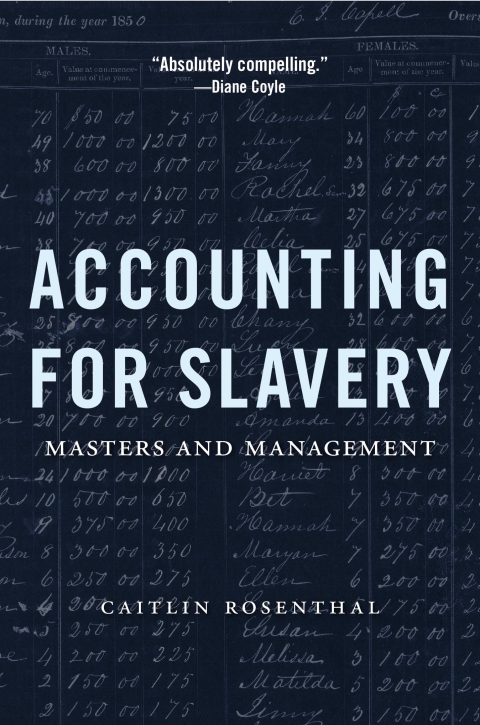Accounting for SlaveryMasters and Management Ebook (tebook.shop)
$25.00
Caitlin Rosenthal
Accounting for Slavery
Masters and ManagementA Five Books Best Economics Book of the Year A Politico Great Weekend Read ‘Absolutely compelling.’ ‘Diane Coyle ‘The evolution of modern management is usually associated with good old-fashioned intelligence and ingenuity’But capitalism is not just about the free market; it was also built on the backs of slaves.’ ‘Forbes The story of modern management generally looks to the factories of England and New England for its genesis. But after scouring through old accounting books, Caitlin Rosenthal discovered that Southern planter-capitalists practiced an early form of scientific management. They took meticulous notes, carefully recording daily profits and productivity, and subjected their slaves to experiments and incentive strategies comprised of rewards and brutal punishment. Challenging the traditional depiction of slavery as a barrier to innovation, Accounting for Slavery shows how elite planters turned their power over enslaved people into a productivity advantage. The result is a groundbreaking investigation of business practices in Southern and West Indian plantations and an essential contribution to our understanding of slavery’s relationship with capitalism. ‘Slavery in the United States was a business. A morally reprehensible’and very profitable business’Rosenthal argues that slaveholders’were using advanced management and accounting techniques long before their northern counterparts. Techniques that are still used by businesses today.’ ‘Marketplace ‘Rosenthal pored over hundreds of account books from U.S. and West Indian plantations’She found that their owners employed advanced accounting and management tools, including depreciation and standardized efficiency metrics.’ ‘Harvard Business ReviewISBN: 9780674972094, 0674972090











